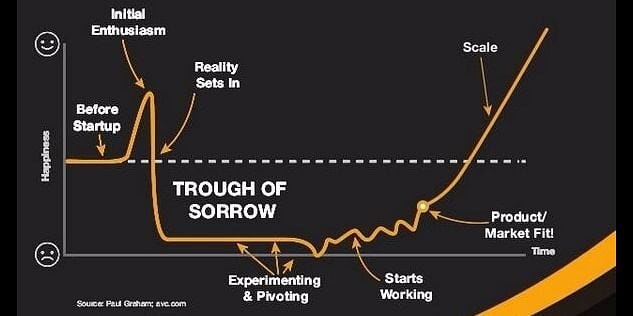Strategic Considerations Before Leaving Your Job for a Startup
Written on
Chapter 1: Understanding the Risks
Deciding to launch your own business is a significant emotional and professional choice, filled with potential risks and hurdles. This section provides a closer look at why leaving your job for your startup might not be the most prudent move.

Financial Instability
Establishing a thriving business and reaching profitability is no simple task; it often takes months or even years before you can rely on a consistent income. Resigning from your job eliminates your regular income and adds the financial burden of operating a business. Achieving product-market fit and generating reliable revenue streams is a gradual process.
From personal experience and observing others, I strongly advise against quitting your job prematurely. If you lack a robust financial strategy, it’s wiser to treat your startup as a side project until your earnings from it surpass your salary. This principle is crucial! Financial uncertainty can lead to significant stress for you and your family, potentially jeopardizing your business.
Resource Limitations
A successful startup requires various resources: inventory, personnel, and funds for marketing, among others. Leaving your job can disrupt the steady flow of resources essential for launching your business.
Consider the challenges of funding employee salaries, leasing office space, investing in marketing, and maintaining your living expenses. Without a stable job, these necessities can become overwhelming.
Lack of Experience
Managing a successful business demands skill, and if you're inexperienced, you might find the journey particularly challenging. While it is possible to succeed, the process may take longer and require significantly more effort.
Without prior experience in business management, you may struggle with the inevitable challenges that arise. Having a secure job allows you to tackle these hurdles with greater emotional and financial resilience.
For instance, imagine you’re a graphic designer eager to start a custom t-shirt printing venture. After quitting your job, you soon realize that you lack knowledge in inventory management, pricing strategies, and customer service. This inexperience can severely hinder your business's chances of survival.
Limited Networking Opportunities
Your current job exposes you to new situations daily, fostering connections that can be invaluable for your startup. These relationships could lead to innovative ideas and increase your likelihood of making significant breakthroughs.
For example, if you’re a sales manager planning to launch a software-as-a-service (SaaS) business, quitting may leave you without a robust network of potential clients or investors. A lack of connections can make it challenging to gain traction and scale your business.
Emotional Strain
Here's a visual reminder of the reality of startups:

As sales become scarce, self-doubt can creep in, leading you to repeatedly second-guess your decisions while facing external criticism. Now, without a steady job, the impact on your mental well-being can be severe.
Having navigated this path myself, I can confirm that it’s often a difficult journey.
In conclusion, do not leave your job until your startup generates more income than your current position.
I'm open to freelance content opportunities; feel free to reach out at [email protected].
Thank you for reading. For more insights on relationships and life, visit Bhanu Singhal. Don’t forget to follow for additional content.
Chapter 2: Essential Video Insights
The first video, "For everyone thinking of quitting their job to start a business," discusses crucial considerations that aspiring entrepreneurs should keep in mind before making such a significant leap.
The second video, "The One Thing You NEED To Know Before Quitting Your Job for Business," emphasizes a vital piece of advice that could shape your entrepreneurial journey.